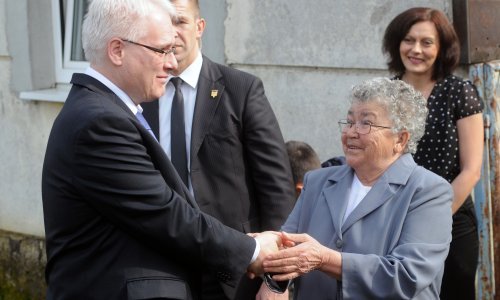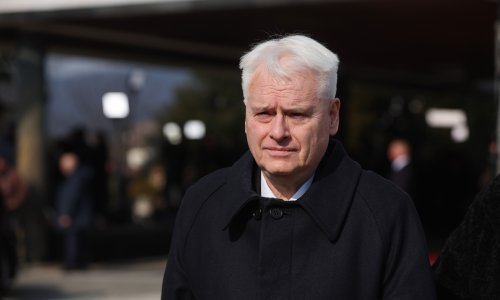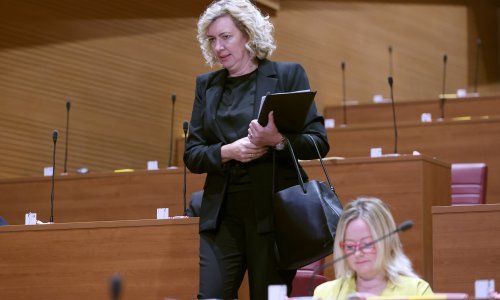President Ivo Josipovic said on Monday the success of his first 100 days in office would be assessed by citizens, adding that during that time he advocated the legal functioning of all public bodies, the development of dialogue and good neighbourliness, and supported the government's consistent fight against organised crime and corruption.
"The public, the media and citizens will evaluate how successful that has been. In the end, the voice of the people is the best criterion," Josipovic told a press conference on the occasion of his first 100 days in office.
The president said he tried to implement what he promised during his election campaign, adding the first 100 days "are the beginning of carrying out what was promised".
Josipovic said he pushed for improving Croatia's position abroad, notably regarding relations in Southeast Europe, for the exercising of citizens' rights before domestic and international institutions, and for Croatia's sustainable development, including citizens' economic and social rights.
The president said he also tried to step up the process of Croatia's accession to the European Union and to promote positive civil society values.
On the home front, he said he tried to cooperate well with the government. "There have been some disagreements, but I don't think they characterise those 100 days."
Josipovic said he visited many towns and met local leaders, "regardless of their party affiliation", that he considered the position and problems of ethnic minorities, and that within his powers he tried to encourage the functioning of state bodies in all areas.
He went on to say that he paid special attention to war veterans and to giving recognition to "those to whom we are indebted for their participation in the Homeland War". He recalled that he was the first Croatian president to have an advisor and an advisory council for veterans.
He added that he had been unsuccessfully pushing for the publication of the Veterans Register, adding that "it would be a good step in giving recognition to veterans and what they gave for us".
Josipovic said he especially pushed for recognising the merits of veterans from the eastern town of Vukovar, voicing hope "that they too will get the state's recognition for what they did for us".
Commenting on economic activities, he said they did not fall within his powers, but underlined that "I don't want to form a parallel government, but I do want to encourage and help positive processes." He added he supported the government's economic programme, pushing for a faster implementation.
Josipovic reiterated that he supported "the social component" and the acknowledgement of the principle that the richer must participate more in paying the cost of the crisis.
The government's programme has serious social connotations and will "generate changes on the social front" which should be predicted by involving not only economists, but other experts as well, he said.
"I think the government realises that too and that it will be ready to eliminate some mistakes or effects along the way."
He recalled that his Economic Advisory Council held three sessions to date, announcing that the next one would focus on employment and the creation of new jobs.
Josipovic declined to give a grade to his first 100 days in office or comment on the election of the new chief of the Social Democratic Party's Zagreb branch, saying it was an internal issue.
He said waking up early was the hardest thing during his first 100 days in office, but underlined that he remained full of enthusiasm and was hopeful that this would remain so throughout his term.

































